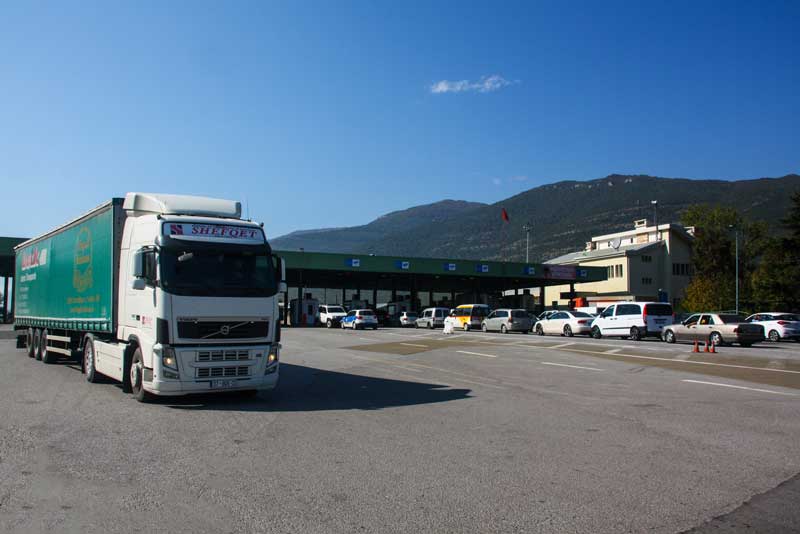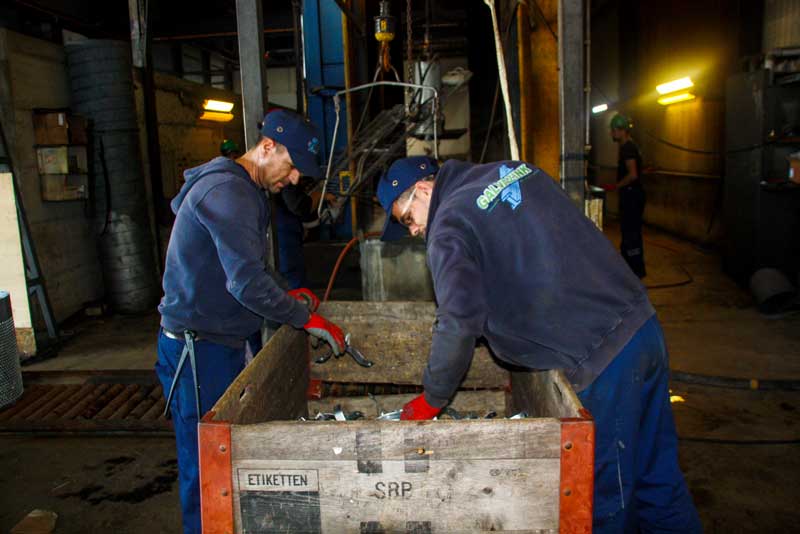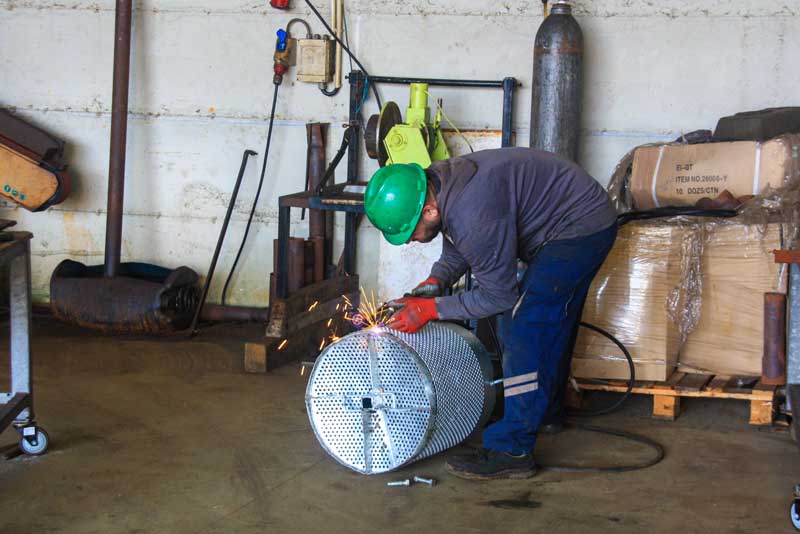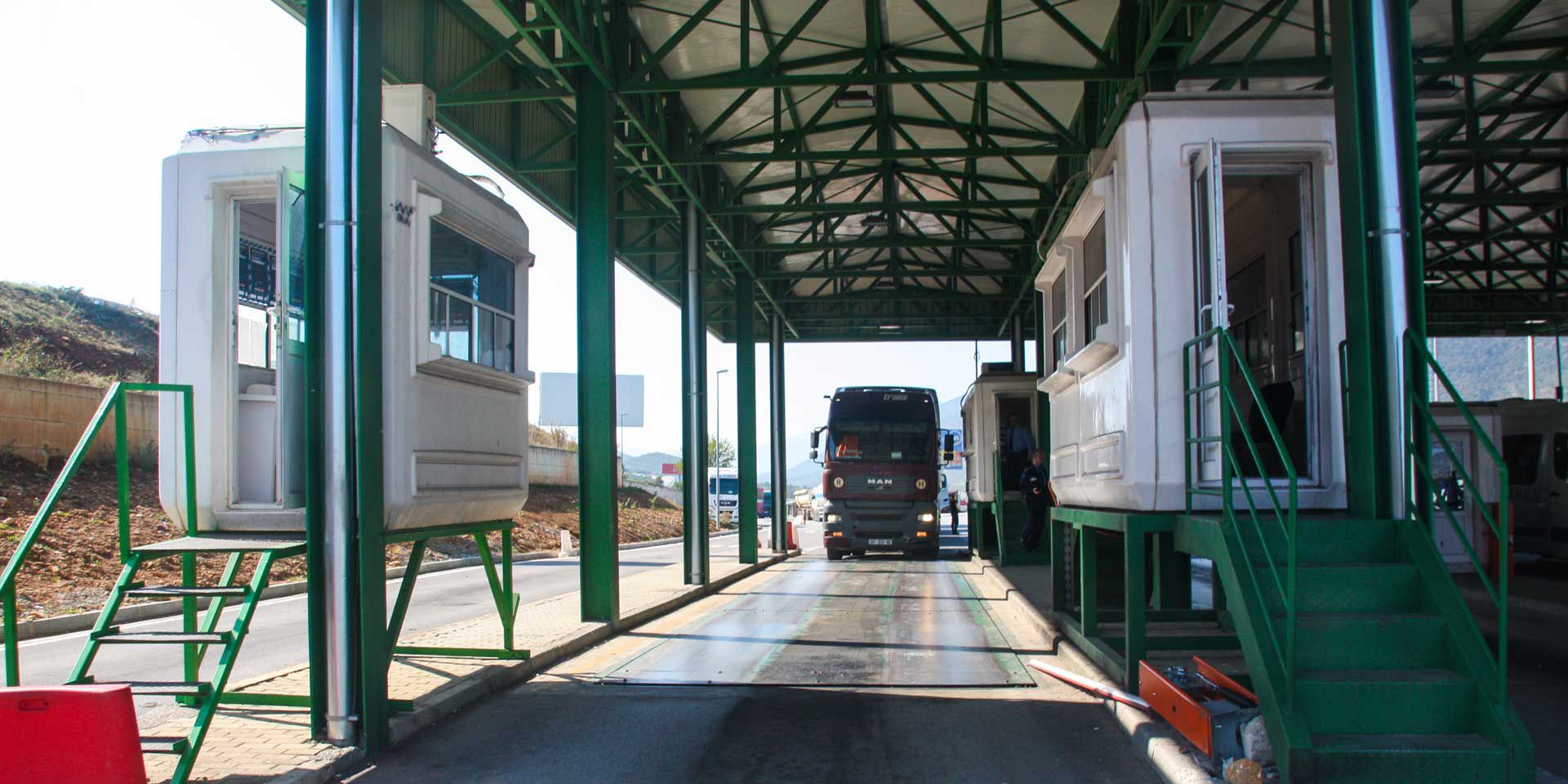For business owners who operate on the principle that time is money, delays that hold up the delivery of goods represent an agonizing loss of potential earnings. When those delays result in empty factories and workers with nothing to do, the waste of resources is even more frustrating.
Petrit Shala, director of Galvazink, a zinc processing company in Kosovo, is all too familiar with these obstacles. Galvazink must navigate the nation’s customs and trade practices as the company imports over 400 trucks of raw products annually, coats the products in zinc, and then re-exports them to the region and throughout Europe.
“We faced issues when our trucks arrived at the inland terminal late in the day,” Shala says. “Customs was already closed, and we couldn’t clear our goods. Our trucks were forced to wait 13 to 14 hours before the inland terminal opened the next day. In the meantime, our factory was idle. This meant that 40 people were waiting on the production line.”
Complicated customs procedures—neither business-friendly nor aligned with international standards—were to blame. Changing this is key to Kosovo’s economic potential and positioning the landlocked country as an effective trade destination in the Western Balkans. Trade facilitation will also help local companies like Galvazink create new jobs—Kosovo currently has a 29.5-percent unemployment rate—and contribute to the country’s economic growth.

Kosovo is one of the first countries in the region to implement the authorized economic operator (AEO) program.
To ease the flow of goods, the Kosovo Customs Administration has rolled out new approaches following two years of support from the World Bank Group’s Trade Facilitation Support Program (TFSP). TFSP is funded by nine donor partners: Australia, Canada, the European Commission, the Netherlands, Norway, Sweden, Switzerland, the United States, and the United Kingdom. This initiative—implemented by IFC and the World Bank—provides assistance to countries seeking to align their trade practices with the World Trade Organization Trade Facilitation
Agreement (WTO TFA).
TFSP recommendations included the implementation of an authorized economic operator (AEO) program, based on the European Union example, which enhances supply-chain security and facilitates trade by simplifying customs. Kosovo is one of the first countries in the region to implement the AEO program.
AEO status will save Galvazink over approximately €28,000 per year, according to Shala. “It will help us to operate more effectively,” Shala says. “The cost savings will enable us to re-invest into the business. We hope to buy more of our own trucks, so that we don’t have to rely on external transport companies.”
Driving Change in the Customs Process
The director of Auto Mita, Kosovo’s leading car dealership and the official representative for Renault and Nissan in the country, also believes that the AEO program will ease customs burdens. The company imports over 200 trucks of new cars and car parts each year—and the preferred status will enable Auto Mita to save over €8,000 per year in clearance fees at the inland terminal.
“Before, the clearance process could take up to 24 hours or more,” says Zgjim Mita, director of Auto Mita. “Now we have more control and can turn a truck around in less than three hours. All goods can be cleared during our regular operating hours. In the past, we relied on the working hours of the inland terminal, Customs, and the trucking company.”

Zinc processing firm Galvazink expects annual savings of nearly €30,000 stemming from its AEO status.
AEO programs translate into a number of other benefits for business, including more simplified customs procedures for AEO-certified traders, expedited processing and release of shipments, and reduced clearance times. They also represent less paperwork, fewer inspections, reduced fees and costs, fewer challenges and delays, and increased trust between traders and customs authorities, as well as between traders and clients.
Customs administrations also benefit from AEO initiatives. For example, better use of human resources enables the agency to allocate funds to more urgent needs. Improved business processes result in faster processing and clearance times. Enhanced compliance and better alignment with international standards also facilitate trade by simplifying procedures.
Meeting High Standards for Certification
The requirements for obtaining AEO status are strict. To become certified, traders are assessed and accredited based on their trade compliance, operating systems, communication and information quality, and international supply chain security. Companies are also required to have three years of clean financial records and a good track record with Customs.

Trade facilitation is expected to help local companies like Galvazink create jobs.
Kosovo’s Customs Administration launched its AEO program less than two years after TFSP support began in 2017. The World Bank Group guidance included technical assistance to enact legislative amendments to include the AEO status and bring it in line with European Union standards, and training Kosovo’s Customs Administration to implement the AEO program.
TFSP is supporting the establishment of AEO programs in Albania, Kosovo, and Montenegro as well as the implementation of a Trusted Traders Program in the Kyrgyz Republic. AEO programs under development throughout the region will also conform to EU standards. This paves the way for mutual recognition—and ultimately harmonization—of nationally accredited AEO firms.
It’s encouraging news for Mita. “With the AEO status recognized in the region, it will make our expansion easier and more effective,” he says. “We are expanding our business to Albania and will increase our workforce by 50 percent.”
Shala’s company, Galvazink, is also branching out. “The plan is to open two more metal processing companies next year, which will double employment,” he says.
Join the conversation: #IFCimpact
Published in November 2019
